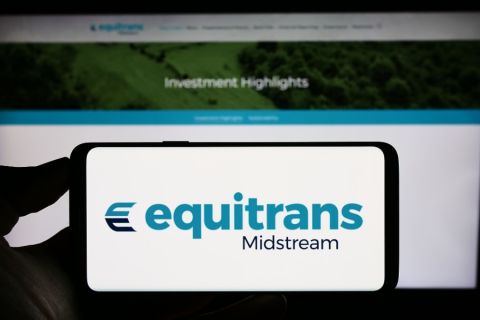CARACAS/PUNTO FIJO, Venezuela—Venezuela’s state-run oil firm PDVSA has been unable to resume crude exports from its primary port since last week’s massive power outage, essentially crippling the OPEC nation’s principal industry, people familiar with the matter said on March 11.
Power remained patchy in most of the country after a blackout on March 7 that the government of President Nicolas Maduro claimed was a U.S.-backed act of “sabotage” on the country's principal hydroelectric dam.
His critics insist it is the result of more than a decade of corruption and mismanagement.
Authorities have given few explanations about why the blackout occurred and how long it might take to resolve, spurring fears it could be indefinite.
PDVSA has launched a contingency plan to restore power to the Jose port, according to one source. The state of Anzoategui, where the port is located, has had only intermittent electricity since Friday, the source added.
The port has its own generator, but depends on the grid for 65% of its power, a PDVSA source said. The generator is not currently working and efforts are underway to restart it to maintain a minimum level of operation.
“It has been totally halted since the blackout. It has affected all of Jose’s oil installations,” another source said, adding that a restart would be costly and require power lines to be replaced.
PDVSA did not immediately reply to a request for comment.
No oil export tankers have left Jose since March 7, according to Refinitiv Eikon data. There were a few shipments between domestic ports on March 9, when power briefly returned, but another outage that lasted through March 10 halted operations again, according to the data.
The power outage also affected the Puerto la Cruz refinery in Anzoategui, which was already operating at minimum levels.
Rationing
Blackouts are not unusual in Venezuela.
Incidents stemming from problems at the Guri hydroelectric dam have briefly disrupted oil activities at fields that depend on the grid, which are mainly located in western Zulia State, rather than the Orinoco belt. Many fields, refineries and ports generate their own power.
The country's crude upgraders, which can convert up to 700,000 barrels per day (bbl/d) of Orinoco Belt heavy oil into exportable grades, also operated at minimum levels due to the lack of power, the sources said.
But the current outage has been much more widespread and prolonged than those in the past. The status of the generators that PDVSA and its private partners use in upstream activities was unclear, though the PDVSA source said many were “re-circulating” the same product to avoid having to shut down.
The source added that the government had decided to ration what little electricity was available until the grid was back operating at 100% to allow the Jose terminal—which includes the port and the Pequiven petrochemical complex—to consume the power it needed from the grid.
“Shipments of crude, sulfur and Pequiven are all paralyzed,” the PDVSA source said.
Even as PDVSA struggles to restart exports, it is having trouble delivering shipments it has already dispatched from its ports due to U.S. sanctions slapped on the company in January in an effort to reduce Venezuela’s government’s cash flow and drive Maduro from power.
The top U.S. buyers of Venezuelan oil are trying to return millions of barrels of crude they need but cannot accept due to the sanctions, leaving the barrels in limbo as demurrage fees accumulate, according to an internal PDVSA document seen by Reuters.
The blackout has also hit domestic fuel supply. PDVSA has said it has activated a contingency plan for its gas stations that do not have their own power generation, but has not provided a general update on domestic fuel supply.
Recommended Reading
Hess Midstream Increases Class A Distribution
2024-04-24 - Hess Midstream has increased its quarterly distribution per Class A share by approximately 45% since the first quarter of 2021.
Baker Hughes Awarded Saudi Pipeline Technology Contract
2024-04-23 - Baker Hughes will supply centrifugal compressors for Saudi Arabia’s new pipeline system, which aims to increase gas distribution across the kingdom and reduce carbon emissions
PrairieSky Adds $6.4MM in Mannville Royalty Interests, Reduces Debt
2024-04-23 - PrairieSky Royalty said the acquisition was funded with excess earnings from the CA$83 million (US$60.75 million) generated from operations.
Equitrans Midstream Announces Quarterly Dividends
2024-04-23 - Equitrans' dividends will be paid on May 15 to all applicable ETRN shareholders of record at the close of business on May 7.
SLB’s ChampionX Acquisition Key to Production Recovery Market
2024-04-21 - During a quarterly earnings call, SLB CEO Olivier Le Peuch highlighted the production recovery market as a key part of the company’s growth strategy.





